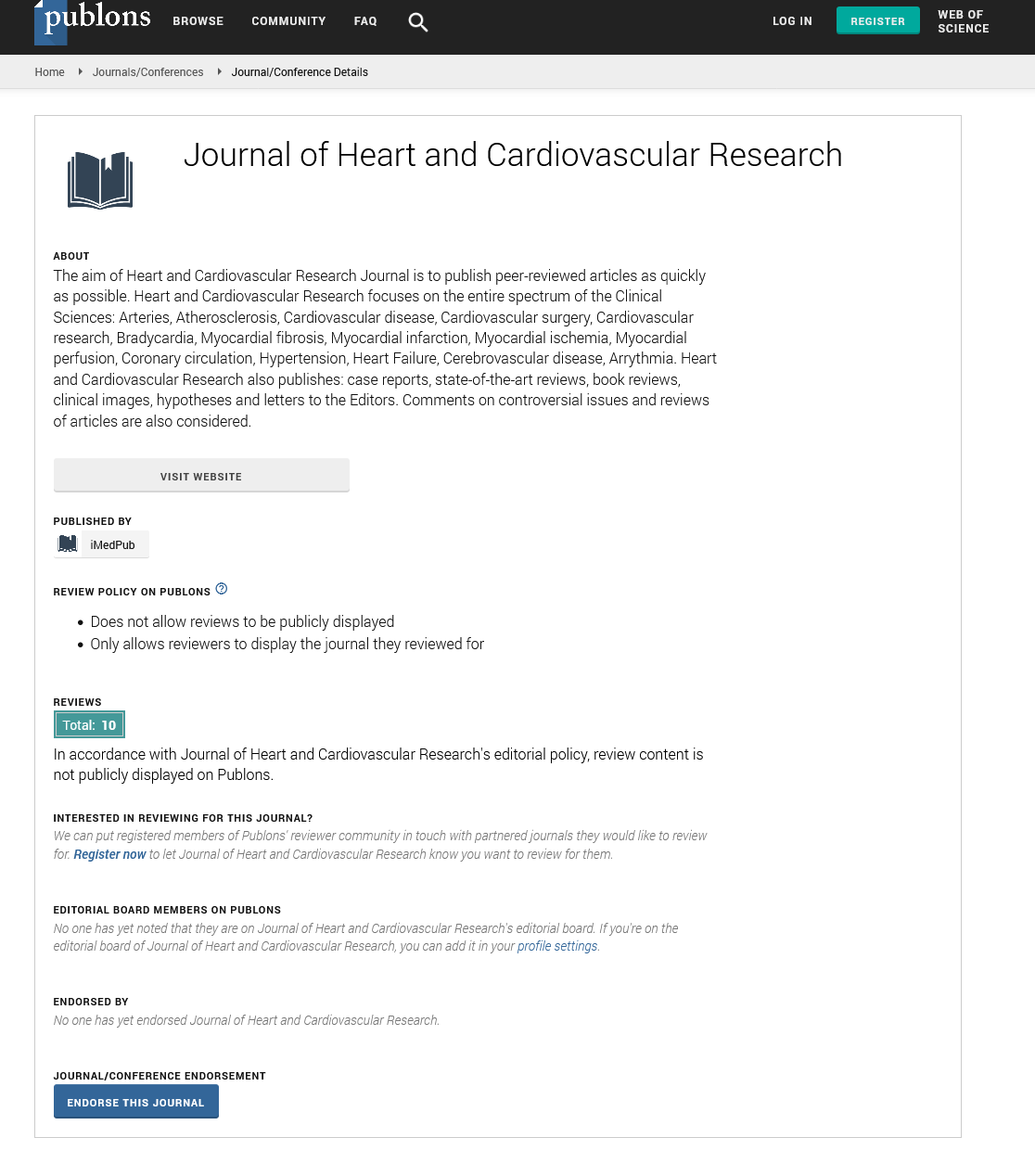ISSN : ISSN: 2576-1455
Journal of Heart and Cardiovascular Research
Abstract
Acute coronary syndrome: young patients tend to delay call for help. Observational retrospective study
Early diagnosis and treatment of ACS can reduce the risk of complications and death. Delay calling for help can increase morbidity and mortality.
Method: Single-centre observational retrospective study. Patients’ admissions identified using data from local Myocardial Ischemia National Audit Project (MINAP) over a period of 30 months. 1603 patients were involved (919 male, 684 female) (mean age 70.4, mode 77 years). They were classified into nine different age groups (18-20 years, 20-29, 30-39, 40-49, 50-59, 60-69, 70-79, 80-89, 90-102). Participants were admitted to the hospital, diagnosed and treated for STEMI, and NSTE-ACS. Time from symptoms onset to call for help was collected in minutes.
Results: Men and women in their 50s and 40s respectively tend to delay their call for help from symptoms onset. For the former it was 590 min on average, range 23029 min, median 102 and mode 25, whereas for the latter it was 1084 min, median 277, and range of 7230. Additionally those groups tend to have longer time delay between symptoms onset and arrival to hospital. Among deaths, it is observed that death is proportional to the time delay.
Conclusion: middle age group of both genders tend to delay their call for help when they experience symptoms of ACS; moreover, regardless of the age, the longer the delay, the higher the mortality rate. Phase 2 of our study will include distributing questionnaires to all patients admitted to the hospital with acute coronary syndrome particularly this age group to find the reason behind this delay.
Biography
Dr Ayuna is a cardiology registrar in Salford Royal NHS foundation trust, UK, he is intereseted in intervential cardiology, he completed PGDip, MSc and MD in cardiology.
Dr Sultan consultant intervential cardiologist at Wrightington Wigan and Leigh NHS Foundation Trust ,UK.
Author(s): Ahmed Ayuna
Abstract | PDF
Share This Article
Google Scholar citation report
Citations : 34
Journal of Heart and Cardiovascular Research received 34 citations as per Google Scholar report
Journal of Heart and Cardiovascular Research peer review process verified at publons
Abstracted/Indexed in
- Google Scholar
- Sherpa Romeo
- China National Knowledge Infrastructure (CNKI)
- Publons
Open Access Journals
- Aquaculture & Veterinary Science
- Chemistry & Chemical Sciences
- Clinical Sciences
- Engineering
- General Science
- Genetics & Molecular Biology
- Health Care & Nursing
- Immunology & Microbiology
- Materials Science
- Mathematics & Physics
- Medical Sciences
- Neurology & Psychiatry
- Oncology & Cancer Science
- Pharmaceutical Sciences
